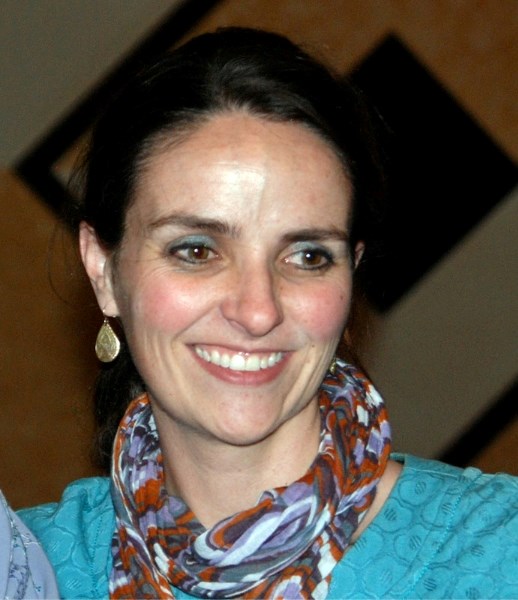St. Albert's own Jacqueline O'Neill, who has spent the past five years working with women in war-torn nations, wants everyone she knows to acknowledge three remarkable women who were presented with the Nobel Peace Prize on Saturday.
O'Neill, a 33-year-old peace activist based in Washington, D.C., said she'd be glued to her own computer screen early Saturday morning to see the prize presented in Oslo, Norway.
O'Neill is director of the Institute for Inclusive Security. She's asking people to visit www.risewiththeprize.org to join her organization's campaign to celebrate the prize going to women peace-builders and enhance awareness of women's roles in bringing stability to their communities.
The Nobel Peace Prize 2011 will be awarded jointly to three women: Liberian President Ellen Johnson Sirleaf; Leymah Gbowee, also of Liberia, and to Tawakkol Karman, a Yemeni activist famed for her participation in the Arab Spring.
O'Neill has a personal connection to two of the prize-winners — she has met Sirleaf and has worked with Gbowee.
"Leymah Gbowee mobilized women in Liberia who, like her, were sick and tired of war and felt they needed to do something," O'Neill explained.
In 2003, having seen her country endure 14 years of conflict, Gbowee rallied thousands of women to take part in protests in the capital city of Monrovia. She even suggested the women go on a sex strike in a bid to stop their men from warring.
As a student working in Sudan a few years ago, O'Neill asked Gbowee to speak about women's issues in other parts of Africa and showed a documentary about Gbowee's protests to women in Sudan.
"Our message to women around the world is that you know what's important in your own community and you have power," O'Neill said.
Strong roots
A graduate of St. Albert Catholic High School, O'Neill is the daughter of Jack and Mary. Jack is a former Alberta deputy minister and Mary is a former MLA and Catholic school board trustee. Jacquie credits her parents for teaching her about public service and for instilling a social conscience in her.
"My parents were always committed to trying to improve the world," she said. "They taught me never to be afraid of people in power."
Following high school, O'Neill attended the University of Alberta and then in 2005 took her masters degree at the Kennedy School of Government at Harvard.
While studying for her masters she worked for two months in Sudan. During that stint she worked three days per week at a United Nations peacekeeping mission and a further three days per week doing research at an all women's university.
"My research at that university showed me that there was a big gap between what the UN was doing and what the women's groups were working on. I devoted my life to bridging that gap and helping them to connect," she said.
Also while at Harvard, O'Neill was under contract from Lt.-Gen. Roméo Dallaire to do research about child soldiers.
Since her graduation she been employed by the Institute for Inclusive Security, whose goal is to use research, training and advocacy to promote inclusion in peace processes, with a particular focus on participation by women.
"The institute got its start in 1999 when Swanee Hunt, who at that time was the American ambassador to Austria, realized that there were no women present at the peace negotiations following the conflict in Bosnia," O'Neill said.
For a time the organization was known as Women Waging Peace.
"But peace is not gender specific. We changed the name to be more inclusive and to say this is about security and to reach out to men for support," O'Neill said.
Raising awareness
The Rise With The Prize initiative is important, she said, because of the awareness it brings, not just about women's issues in war-torn areas, but because it shows people that all over the world, women are working at the grassroots to make their countries better.
"We work with a global network of well over 1,000 women leaders from more than 40 conflict regions. Our research gives policymakers new strategies," she said.
The Nobel Prize was scheduled to be awarded to the three female leaders Saturday at 7 a.m. St. Albert time. All three women are outstanding and courageous, O'Neill said. She stressed that, in addition to watching the presentation, it's equally important for people to learn about the women who will be awarded the prize and about the women's peace movement.
"Talk to your politicians and constantly ask them what Canada is doing to bring women in war zones to the decision-making table," O'Neill said. "Be aware and always ask yourself, 'Am I hearing only men's voices in this story? When women are involved in the peacemaking process, they do make a difference."




